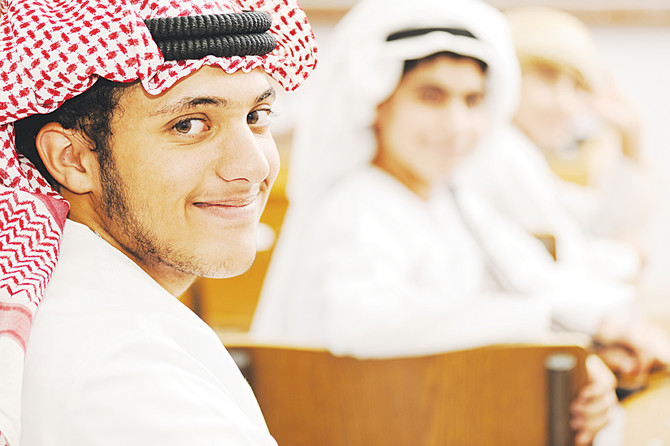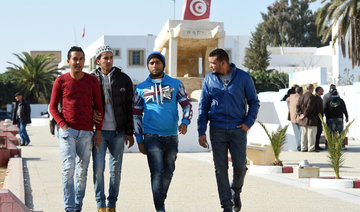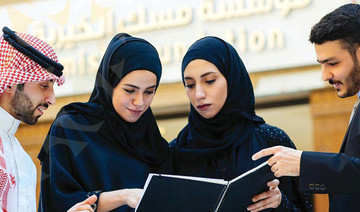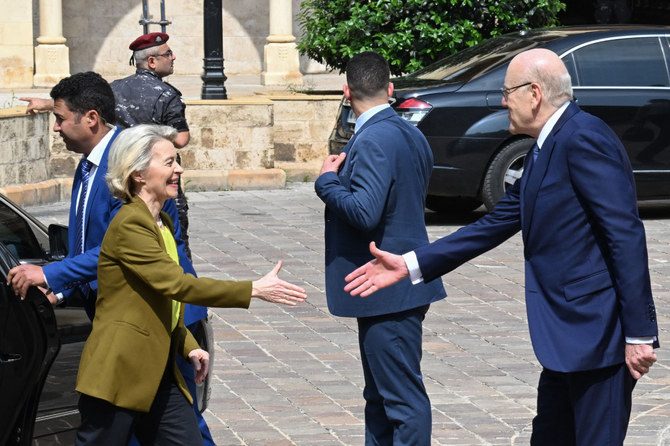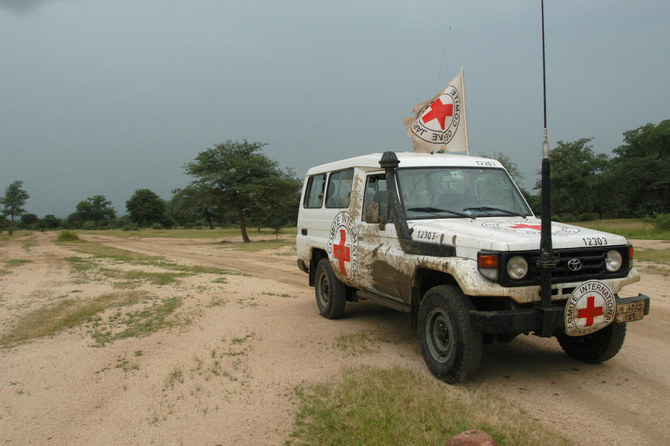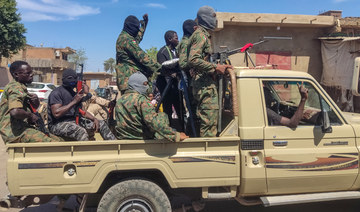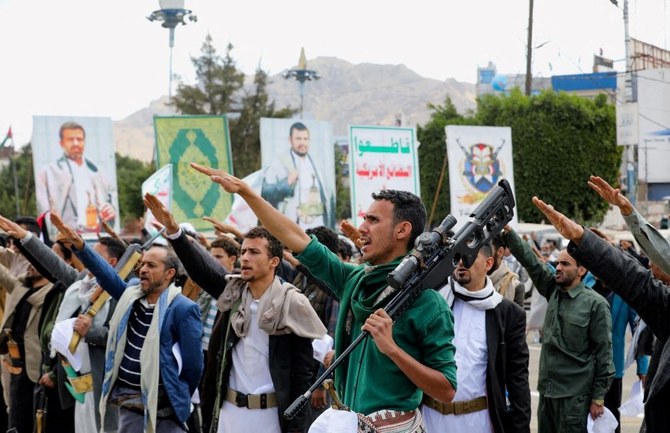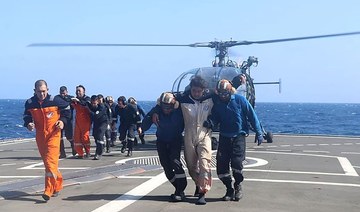DUBAI: Scientist or terrorist? The choice might seem extreme, but young Arabs are being urged to get involved in fields such as science and technology as part of a push to empower youth in the region and protect them from the risk of recruitment by terrorist groups.
“Space is just one example of a sector in the UAE that has actively empowered youth,” said Sarah Al-Amiri, UAE minister for advanced sciences, at a recent conference on youth and sustainable peace organized by the Trends Research and Advisory think tank in Abu Dhabi and Women in International Security (WIIS), based in Washington, DC.
“We do see a global cry for youth engagement, but active participation is necessary today. Empowering youth to undertake monumental shifts is the key to engaging them.”
Access to all levels of education with reduced cost, or none at all, is a global mandate that all Arab countries need to take on, she said.
“The future is being built for them, and they should be designers of the future, with ownership of it.”
Saudi Arabia has also been leading efforts to deliver change, with 92 percent of young Saudis in last year’s Arab Youth Survey expressing a positive view of the outcome of Saudi Crown Prince Mohammed bin Salman’s Vision 2030.
Moreover, around 60 percent of citizens in the Kingdom are under the age of 30 and almost two-thirds are considered youth.
The GCC youth population will reach an expected 65 million by 2030.

Peace dividend: Young people who feel marginalized and excluded are vulnerable to terrorist recruitment, experts warn. (File photo)
“Youth is a very important part of our population,” said Dr Ahmed Al-Hamli, president and founder of Trends Research and Advisory.
“We are in a race with the world and youth is the backbone of progress. We aim to empower youth in combating all the challenges and meeting gender equality throughout the world.”
In order to do that, youth need peaceful surroundings, access to education and job opportunities.
“Youth and children are the most vulnerable category in the world because of crises, conflicts and sectarian differences,” Al-Hamli said. “It’s increasing and has become the most dangerous period in the 21st century so far. We believe we can together generate initiatives that lead the youth, focus on them and empower them to serve humanity as a whole.”
WIIS also caters to young people, with specific programs on international peace and security that target graduate students or the next generation of scholars, experts, practitioners and policymakers.
“We hope to expand these programs in the Gulf in the future,” said Dr Chantal de Jonge Oudraat, president of WIIS. “But there is a lack of data and research (on youth contributions), and we need more of it.”
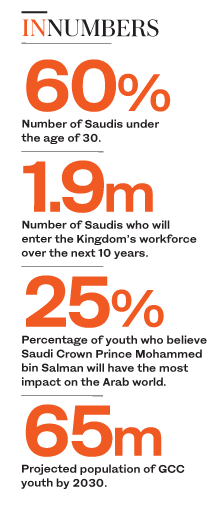 De Jonge Oudraat spoke of the millions of young men and women aged between 10 and 24 who need to have a voice when it comes to peace and security, and the 480 million young men and women who live in fragile and conflict-affected states or areas who need to be represented and participate in peace-building efforts.
De Jonge Oudraat spoke of the millions of young men and women aged between 10 and 24 who need to have a voice when it comes to peace and security, and the 480 million young men and women who live in fragile and conflict-affected states or areas who need to be represented and participate in peace-building efforts.
The Youth Peace and Security Agenda, launched in December 2015 by the UN Security Council, recognizes the importance of involving youth in conflict prevention. “The issue of young people is an issue of importance, not only for national governments, but the international community at large,” de Jonge Oudraat said.
“Forty-two percent of the world population is below 24, and in Africa and the Middle East, young people are in the majority. In some countries, the percentages are as high as 60 to 70 percent, so the magnitude of the youth population has major national and international social, economic and political ramifications.”
She said that many young people around the world feel frustrated, often excluded and marginalized, which makes them more susceptible to terrorist recruitment. “We’re here to advance all that because it’s not only right thing to do, but it’s also the smart thing to do,” she said.
“If we want to live in a prosperous, more peaceful world, all members of society require respect, consideration and should be able to participate in public life.”
Earlier in October, the UN launched its youth strategy to change the perception surrounding young people.
“For a long time, people would say youth are troublemakers,” said Achaleke Leke, coordinator of the Commonwealth Youth Ambassador Network, who helped develop the strategy. “But if we are a high percentage, then it means there will be no economic development or peace.
“Those who turn to violence are trapped in a space by the failure of governments, and we need to support young people in this process, invest in them and make them see each other as peers to sustain peace within communities.”
According to Aqeel Ahmed, policy officer for the Scottish government and member of the Scottish Youth Parliament, the best ideas often come from youth who are the farthest away from the system.
“We need to see governments treat youth as agents of change, and we need a clear leadership from our governments,” he said. “Youth who are engaged inspire others to get involved as well.”
Countries such as Saudi Arabia and the UAE are seen as key to paving the way forward for the region. According to the Misk Foundation, around 1.9 million Saudis will enter the Kingdom’s workforce over the next 10 years, increasing its size by more than a third.
“Our country is rich in its natural resources; we are not dependent solely on oil for our energy needs,” Crown Prince Mohammed bin Salman said as part of his Vision 2030.
“Gold, phosphate, uranium and many other valuable minerals are found beneath our lands, but our real wealth lies in the ambition of our people and the potential of our younger generation. They are our nation’s pride and the architects of our future,” he said.
Younger generations are embracing the change. “Many reforms are happening across the country,” Nouf Al-Mansour, a 29-year-old entrepreneur from Jeddah, told Arab News.
“This is a new era for young Saudis and young Arabs as a whole. It’s important we focus our efforts towards this change because we are the ones who are responsible for our region’s future and if we don’t take the lead today, then who will? Our voice has to be powerful.”


